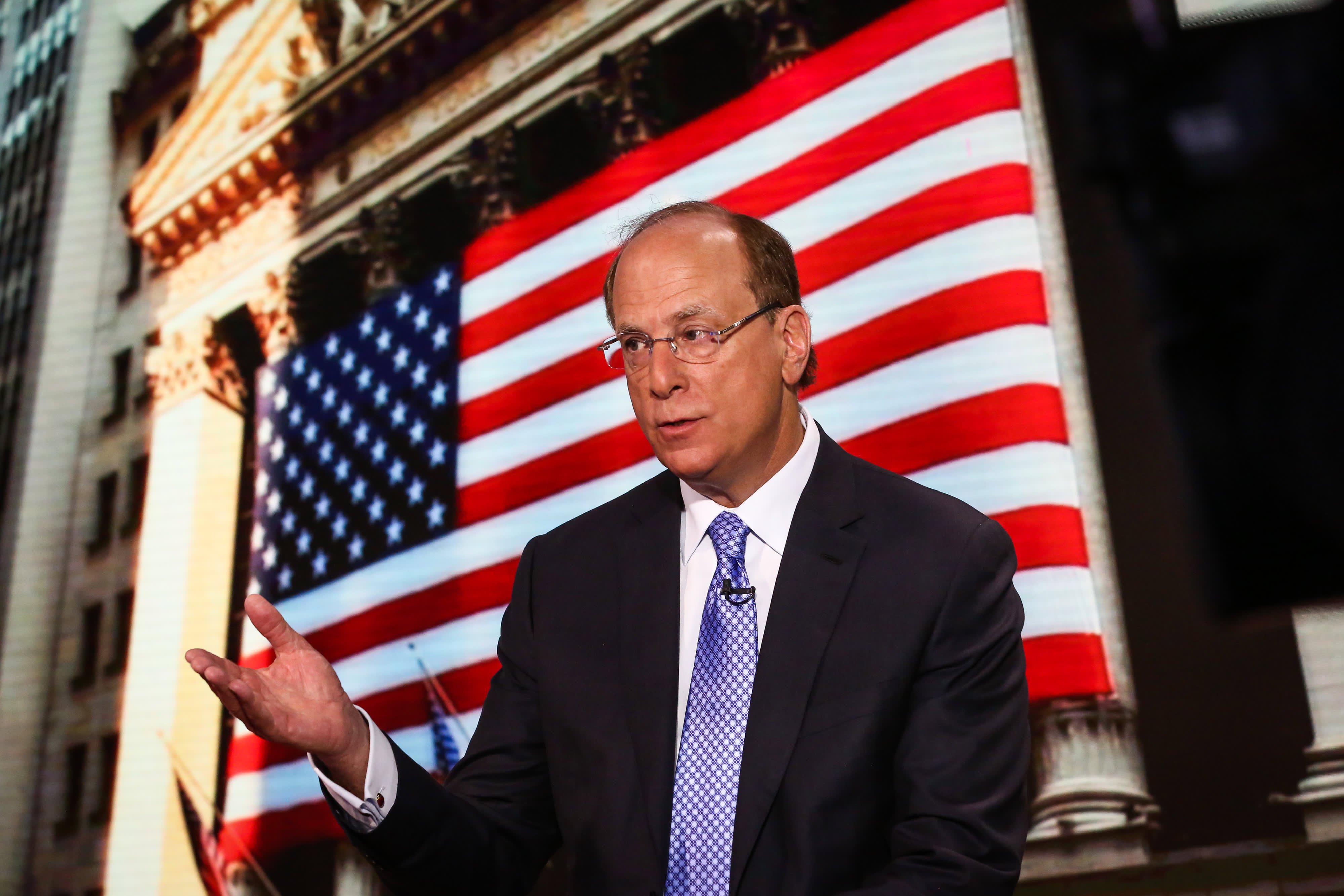Climate activists criticize BlackRock CEO’s support for slow transition off oil and natural gas

Larry Fink, chief executive officer of BlackRock Inc.
Christopher Goodney | Bloomberg | Getty Images
BlackRock CEO Larry Fink’s most recent annual letter called the need to decarbonize the global economy the largest investment opportunity of this generation, but he didn’t go far enough in his willingness to castrate the oil and gas industries, climate activists say.
Fink said traditional fossil fuel companies cannot be cut out of the energy transition because oil and gas will be necessary to bridge global infrastructure from where it is now to the decarbonized future where it needs to go.
“The transition to net zero is already uneven with different parts of the global economy moving at different speeds. It will not happen overnight. We need to pass through shades of brown to shades of green,” Fink wrote. “To ensure continuity of affordable energy supplies during the transition, traditional fossil fuels like natural gas will play an important role both for power generation and heating in certain regions, as well as for the production of hydrogen.”
Also, BlackRock, which on Friday revealed it had surpassed $10 trillion in assets under management, does not have a policy of divesting from fossil fuels.
Some of BlackRock’s clients do divest completely from oil and gas investments, while others do not, Fink said. Fink said the world currently depends on hydrocarbons and “we need to rapidly admit that.”
“Any plan that focuses solely on limiting supply and fails to address demand for hydrocarbons will drive up energy prices for those who can least afford it, resulting in greater polarization around climate change and eroding progress.”
But some climate activists rejected this notion.
“Fink is insisting on continuing to prop up dirty fuels like fracked gas and peddling the outdated and dangerous view that gas has a place in the energy transition, despite the scientific consensus that we need to stop expanding fossil fuels immediately,” Ben Cushing, fossil-free finance campaign manager with the Sierra Club, said in a written statement.
Moira Birss, climate and finance director at Amazon Watch, said that to include fossil fuel companies in an energy transition conversation is a sign of Fink being an insincere climate voice.
“Fink apparently wants to be above the political fray, but by playing nice with those profiting off of the causes of climate change, he’s making the political choice to reject climate science, which makes absolutely clear that a rapid transition from all fossil fuels is unquestionably urgent and necessary,” Birss said in a statement.
On CNBC’s “Squawk Box” on Tuesday, Andrew Ross Sorkin asked Fink how he decides whether a hydrocarbon company — that is a company which works with natural gas or crude oil — is worth being part of energy conversations and investments in the future.
Fink told Sorkin that blue and green hydrogen technologies need to be developed further, as do technologies to decarbonize steel and cement, and to affordably sequester carbon emissions.
Also, in his letter, Fink said government regulation is going to be critical in the evolution of a energy markets. “Businesses can’t do this alone, and they cannot be the climate police,” Fink said. “We need governments to provide clear pathways and a consistent taxonomy for sustainability policy, regulation, and disclosure across markets.”
Still, climate advocates reject the idea that greenhouse gas emitting energy sources have any role in current energy conversations.
“His opportunistic argument for supporting fossil gas as part of the green transition is flatly contradicted by climate science,” Lara Cuvelier, campaigner at Reclaim Finance, non-profit organization which advocates to shift the world’s largest financial institutions away from fossil fuels.
“Fink is thus providing cover for the building of dozens of new gas plants, which would lock us into fossil fuels for years to come. Moreover, his simplistic attack on divestment obscures a vital lesson: to succeed, engagement must be paired with a clear demand to stop fossil fuel expansion,” Cuvelier said in a written statement.
“Given BlackRock’s enormous fossil fuel interests, perhaps this truth is just too inconvenient to stomach,” Cuvelier said.